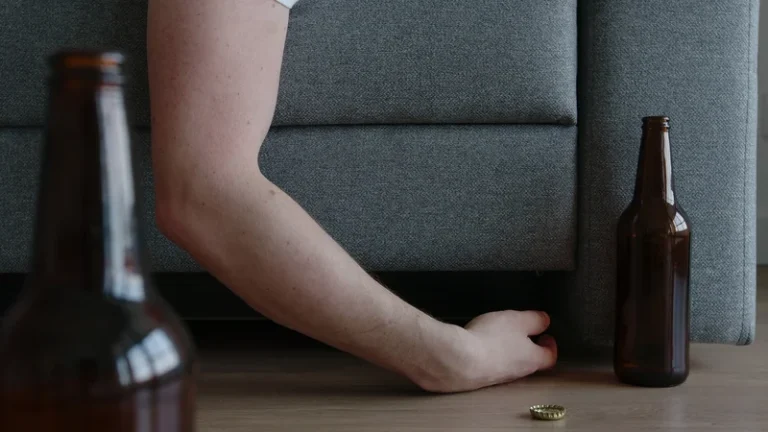Alcohol Use Disorder and Depressive Disorders Alcohol Research: Current Reviews

A person should also monitor their reaction to alcohol when using antidepressants. Some people who take selective serotonin reuptake inhibitors (SSRIs) may become severely intoxicated when they use antidepressants. For many people, feeling sad or unhappy is a prominent symptom of depression. It can affect many aspects of a person’s life and can even be debilitating. Chronic alcohol use may change brain chemistry in a way that increases the risk of depression.
- It can affect many aspects of a person’s life and can even be debilitating.
- While alcohol use can directly trigger feelings of depression, it can also contribute to symptoms in more indirect ways.
- According to the National Institute on Alcohol Abuse and Alcoholism, moderate drinking means one drink per day for women and two drinks per day for men.
- Anxiety disorders are the most prevalent psychiatric disorders in the United States.
Alcohol can increase the risk of dangerous symptoms
Here are a few strategies alcohol and depression to help you lift your spirits in the moment. Increased anger might lead you to pick a fight with a loved one, for example, while extreme sadness or self-loathing could lead to intense depression symptoms. When you regularly turn to alcohol to manage challenges and negative feelings, you may not take other actions that could help you address those problems effectively.

Manual of the General Health Questionnaire

Consider talking with someone who has had a problem with drinking but has stopped. There are many support systems in place to help you begin your journey. And research continues to produce better medications and therapies to help you detox more comfortably and effectively treat depression symptoms.
- If you wake up feeling miserable after a night of drinking, you don’t have to wait it out.
- Bad sleep can easily affect your mood the next day, since exhaustion and lingering physical symptoms can make it tough to concentrate.
- Understanding the link between alcohol and depression can help you better manage depression after drinking, or better yet, prevent it from happening in the first place.
- The NHS website, Every Mind Matters, has advice on how to access support and treatment for depression in England.
- In residential treatment, “an individual stays in a treatment setting, receives intensive therapy, and is physically separated from alcohol in order to recover,” says Kennedy.
When to see a doctor
You can, however, take steps to lower your chances of emotional side effects when drinking. Taking some time for productive relaxation can also help ease feelings of depression. Spending time in nature can also have health benefits, including improving your mood. If the sun is out, that’s even better — sunshine can trigger the release of serotonin, which can help relieve depression. It’s more likely to worsen negative mood states, along with physical health. Alcohol can affect the areas of your brain that help regulate emotions.
- Drinking water may not have a direct impact on feelings of depression, but rehydrating can absolutely help you start feeling better physically.
- There are lots of choices when it comes to medication that treats depression, and there are drugs that lower alcohol cravings and counter the desire to drink heavily.
- In particular, she’s committed to helping decrease stigma around mental health issues.
- Pouring yourself a glass of wine or cracking a beer at the end of a long day may temporarily relieve feelings of depression, because alcohol acts as a sedative, but it will exacerbate those feelings and actually intensify them.
- And research continues to produce better medications and therapies to help you detox more comfortably and effectively treat depression symptoms.
- When combined with alcohol, however, they can cause life-threatening intoxication.
If you feel unable to keep yourself safe or think you might harm yourself it’s a mental health emergency. Call 999, contact your local mental health crisis team or go straight to A&E if you’re able to safely. You might try to drink more alcohol to get rid of these symptoms, but using alcohol to manage your mental health instead of getting help can lead to more problems. This CME/CE credit opportunity is jointly provided by the Postgraduate Institute for Medicine and NIAAA. Both substances may make a person feel less alert, so they may be dangerous if a person takes them together. This is especially true for those who use other medications or have a chronic medical condition.

” See the Resources section, below, for SUD screening and assessment tools. Drinking too much alcohol is a risk factor for new and worsening depression. Crystal Raypole has previously worked as a writer and editor for GoodTherapy.
- By following safe drinking guidelines, you can help reduce your risk for depression as well as other hangover symptoms.
- If you feel that you sometimes drink too much alcohol, or your drinking is causing problems, or if your family is concerned about your drinking, talk with your health care provider.
- However, depression symptoms can improve after abstaining from alcohol for about 3 to 4 weeks.
Often, people turn to alcohol to help relieve their depression symptoms. One study of people with both AUD and depression undergoing treatment for both conditions found that the majority of symptom improvement for both conditions happened during https://ecosoberhouse.com/article/marijuana-addiction-how-addictive-is-weed/ the first three weeks of treatment. Alcohol consumption can lead to feelings of depression due to chemical reactions.